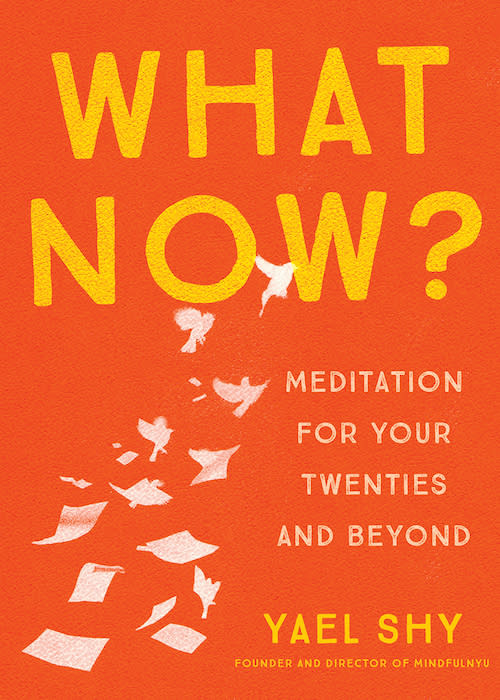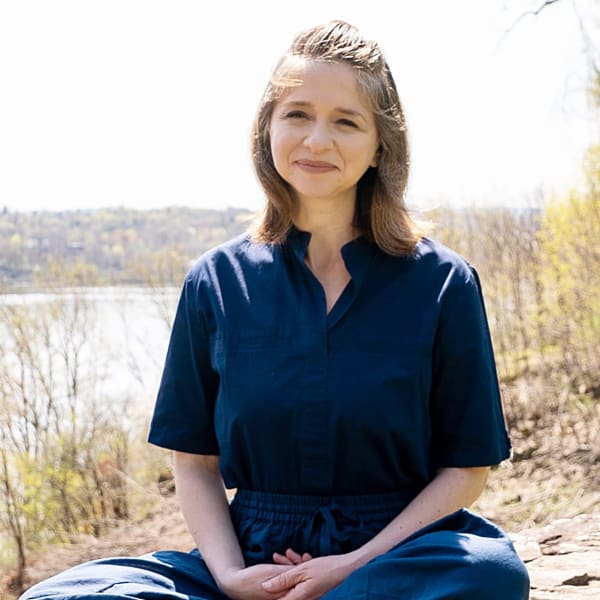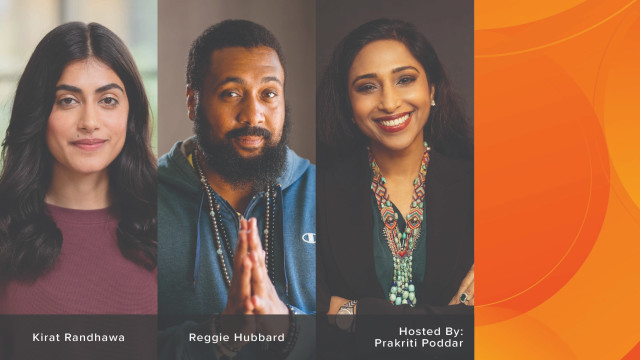My Anxiety After I Found Meditation

College can be a challenging time for anyone, which was certainly the case for Yael Shy. Fortunately, she stumbled on a solution to the pain she was feeling: a meditation retreat that changed everything. Here, Shy talks through her journey with anxiety, how she learned to make space for her feelings, find inspiration from various traditions, and why visualizing a machete in your mind isn't the best approach for a beginner meditator.
Q: How did you first discover meditation?
A: It was during college, and I was suffering. My parents were getting a divorce while I was going through a breakup. I had PTSD from 9/11, and my anxiety was through the roof. I was desperate for a solution.
After going on a seven-day silent meditation retreat where I almost ran home because I was struggling so much, a teacher advised me to shine a light on my fear. Once I did, I started learning so much about how to manage my anxiety, release the personal stories I carried around, and create space for my feelings rather than remaining hostage to them.

Yael Shy is the author of What Now?: Meditation for Your Twenties and Beyond.
Q: What's your top tip for a beginning meditator who's learning how to ease anxiety?
A: Be kind to yourself, especially when dealing with anxiety! When I first started meditating, I would imagine a huge machete slicing through my thoughts before bringing my attention back to the breath. My mind was always wandering, so I was visualizing this huge knife hacking away at my thoughts all the time, which was unpleasant. I also just judged myself so much for thinking all the time and being unable to remain present for more than half a second at a time.
I wish I could have told myself that meditation is not about staying with your breath. It is about seeing the patterns of your mind when you do wander to better understand your inner narratives. It would be difficult to understand or learn this if your mind never wandered. Overall, we need a lot of compassion, kindness, and softness when we first start meditating — it is not easy!
Q: What does your daily meditation practice look like?
A: I practice every weekday for 30 minutes after my kids start school. I sit down on my cushion or couch — it varies — and generally begin by relaxing my body, finding my upright-but-at-ease posture, then following my breath. After a few minutes of that, I sit in more "open awareness" practice, letting sounds and other sensations float in and out of my awareness, softening thoughts when I realize I'm lost in them, and returning to the moment, again and again.
Q: What are the most significant benefits you've received from meditating?
A: I went from having panic attacks at least once a week and anxiety all the time to experiencing relatively short-lived bouts of anxiety and a general feeling of happiness in the world. I am certainly not happy and smiling all the time. Still, meditation has given me an anxiety relief mechanism where I can be with whatever is happening inside with a more open heart and spaciousness — whether pleasant or painful. I am so grateful for that.
Q: What are your favorite topics to focus on in your classes?
A: My favorite topics for my classes relate to how meditation impacts real life. This includes working with jealousy, dealing with anxiety, anger, feelings of inadequacy, or loneliness. I try to incorporate wisdom in the form of stories, poems, and writings from various traditions that answer the questions, "What matters in this life?" and "What is most important?"
Shift your perception of loneliness through this meditation course, Discover the Gifts in Loneliness with meditation teacher Yael Shy.
Header photo: Cecilie Arcurs/E+/Getty Images









